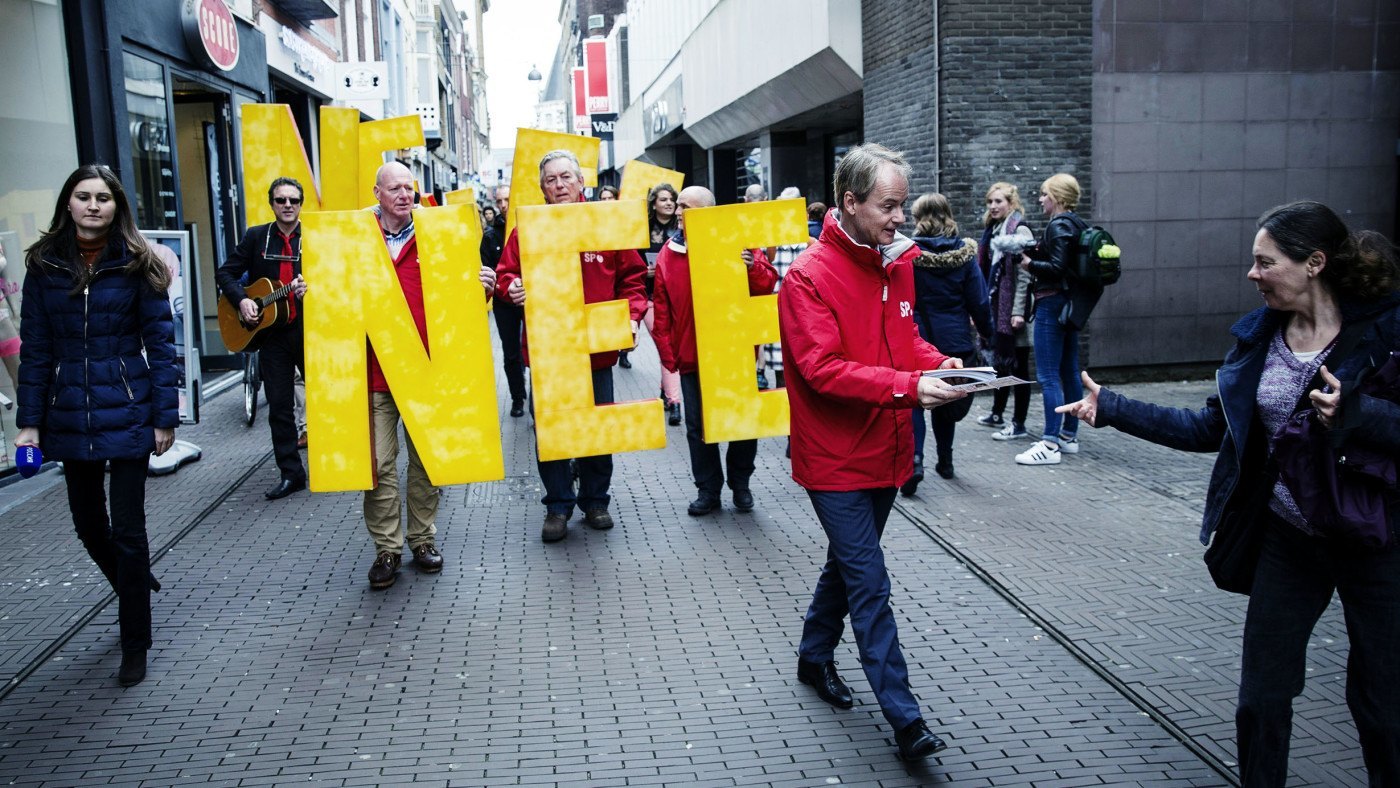Yesterday’s referendum in the Netherlands, in which a sweeping majority of 61 per cent of voters rejected the proposed EU-Ukraine association agreement, dealt yet another blow to the imploding European project. The plebiscite was generally viewed as a vote on the credibility of the EU, for which the outcome is a further humiliation in the midst of its currency and migration travails.
It is also a huge encouragement to Brexit campaigners in the UK. A favourite tactic of Europhile propagandists is to represent British Eurosceptics as out of step with their fellow citizens on the continent. The Netherlands result suggests that is indeed the case, in the sense that the Dutch rejection of Brussels was more emphatic than is recorded in UK opinion polls. The referendum was forced on the government by a social-media group that collected 450,000 signatures on a petition – a symptom of growing popular activism against the European establishment.
The history of the Ukraine treaty rejected by the Dutch yesterday also tells us much about the EU. This agreement was originally proposed in 2013 to the Ukrainian government of Viktor Yanukovych, which rejected it. Pro-EU agitators then whipped up rebellion in February 2014 in Kiev, where barricades were festooned with the EU flag, and Yanukovych was violently overthrown.
Yanukovych had been elected in 2010, in an election that 3,149 international observers, including those from the Organization for Security and Cooperation in Europe (OSCE), certified as being transparent and honest. The rebels claimed he had “lost his mandate”. In that case, since a mandatory presidential election was just 11 months away, why did they not remove him by peaceful electoral means? Because the pro-EU faction knew it would lose the election, is the answer.
When EU apologists see all their economic arguments discredited by reality, they resort to the weasel claim: “The EU has secured peace in Europe for decades.” It has done no such thing: it is Nato that has delivered European security. There is only one war currently being waged in Europe – in Ukraine – and the EU provoked it.
In repudiating closer links with Ukraine the Dutch electorate has delivered a further body blow to the EU, already on the point of fragmentation under the strain of its toxic currency, the migration crisis and the threat of Brexit. American commentators were already calling the Netherlands referendum Nexit before the vote, recognising the anti-EU sentiments that animated the No camp.
There are echoes of 2005, when 61.6 per cent of Dutch voters in an earlier referendum voted down the proposed EU constitution, as the French had already done. In 2007 it was resurrected, cosmetically disguised as the Lisbon Treaty. Such a subterfuge would not be tolerated today by an increasingly angry European electorate. The situation is especially embarrassing for the Dutch government of prime minister Mark Rutte, since the Ukraine agreement was endorsed by parliament and has technically been in force since 1 January.
Legally, yesterday’s referendum was advisory rather than binding. It only obliges the Dutch government to pause and consider the situation. As recently as five years ago that process would have been a charade, followed by the stealthy implementation of the Ukraine association agreement. But things are different today, with public opinion across the continent violently inflamed against the EU. Rutte tried to sidestep that new reality when he said: “We must now find a solution that is acceptable to all parties.”
What does that mean? After a national referendum the only acceptable solution is to respect the wishes of the majority. A new element is taking centre stage in EU affairs: the public will of Europe’s citizenry. It was the turn of the Dutch yesterday. In June it will be Britain’s opportunity to reclaim its sovereignty and exit a failed European project that looks more battered than ever, after the Netherlands’ referendum rebuff.


